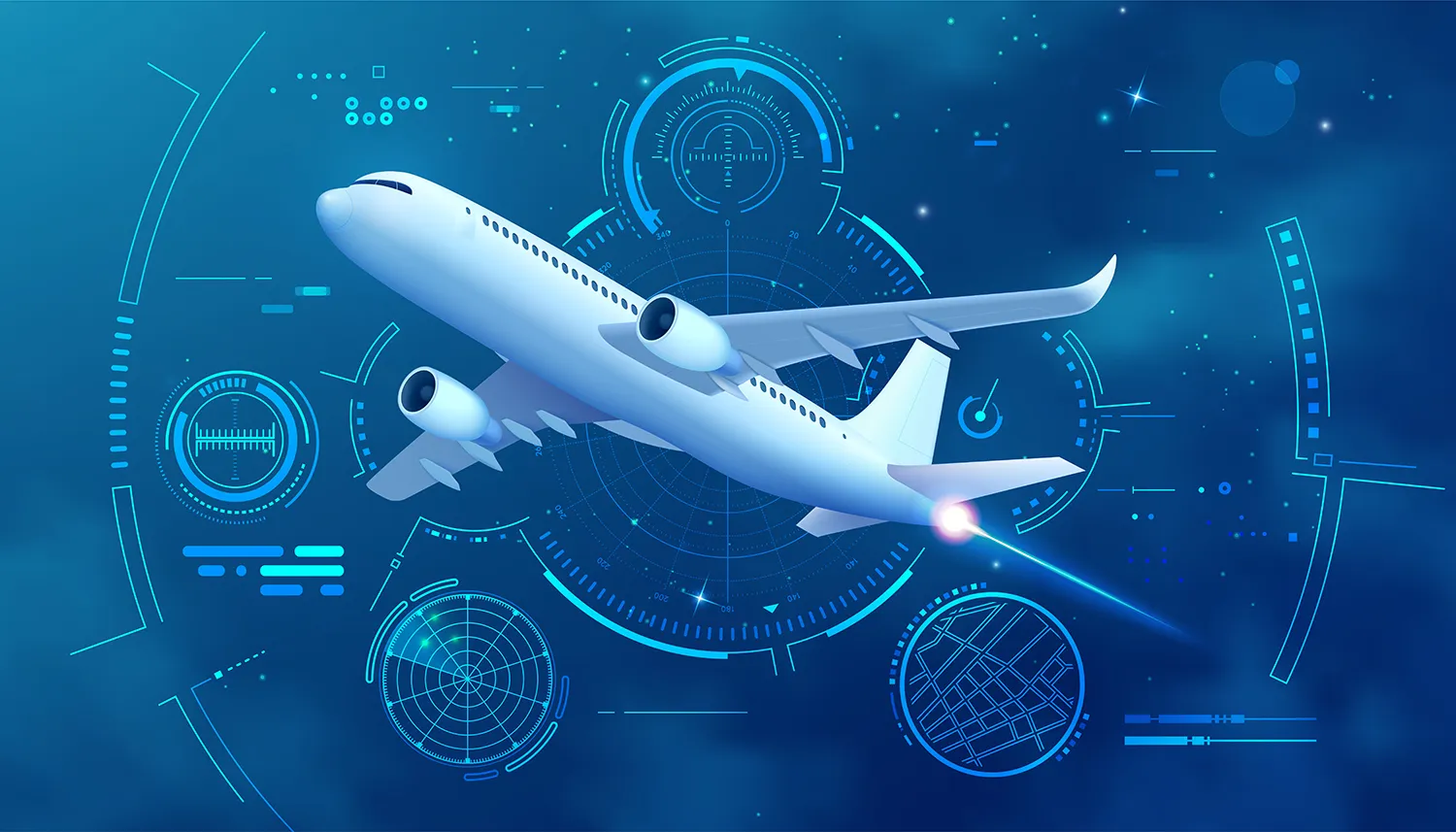Digital Transformation in Russian Aviation: Innovation at Cruising Altitude

Faced with sanctions and driven by a quest for technological sovereignty, Russia’s aviation industry is fast-tracking the development and deployment of homegrown digital solutions—from AI and digital twins to domestic avionics software and air-to-ground communication systems.
Modeling the Future with Digital Twins
One of the pillars of Russia’s aviation digitization strategy is the adoption of digital twins—virtual replicas of real-world components that simulate behavior throughout the lifecycle. Rostec-affiliated firms are already using these technologies to streamline aircraft development. For instance, in designing the AI-222-25 jet engine, engineers rely on AI-enhanced platforms that minimize the need for physical tests and accelerate production timelines. Experts note that digital modeling improves accuracy and reduces costs—crucial advantages in complex systems like jet engines, where even minor miscalculations can lead to major setbacks.

JetOS: A Homegrown Operating System for Avionics
A key milestone in Russia’s push for independence is JetOS—a real-time operating system developed for both civil and military aviation. Already deployed in the Yak-130 jet trainer and the next-generation MC-21 airliner, JetOS handles onboard data processing and display in real time. The system complies with international standards like DO-178C and ARINC 653, making it a viable global competitor. JetOS marks a significant step in replacing Western avionics systems with domestic alternatives.
Revolutionizing Aircraft Operations
The digital shift isn’t limited to manufacturing—Russian airlines are embracing proprietary solutions to optimize fleet operations. S7 Airlines has adopted a Russian-made ACARS (Aircraft Communications Addressing and Reporting System) platform to enable real-time communication between aircraft and ground teams. This upgrade shortens turnaround times and improves maintenance coordination. Meanwhile, Aeroflot is working with Yakovlev Design Bureau to develop digital tools for flight data analysis and automated maintenance scheduling—initiatives aimed at reducing aircraft downtime and boosting operational efficiency.

Strategic Collaboration and Global Outlook
Russia’s aviation digitalization is fueled by strong collaboration between government, manufacturers, and carriers. The sector is entering a new phase, where AI, digital twins, and locally developed OS platforms form the basis of a competitive ecosystem. International interest is also growing, particularly from BRICS countries, Southeast Asia, and the Middle East—regions where the need for aviation tech independence is acute. Russian solutions, designed with adaptability in mind, can be localized easily for overseas markets. Digital transformation in Russian aviation is no longer a concept—it’s an active and strategic upgrade shaping the industry's future.









































